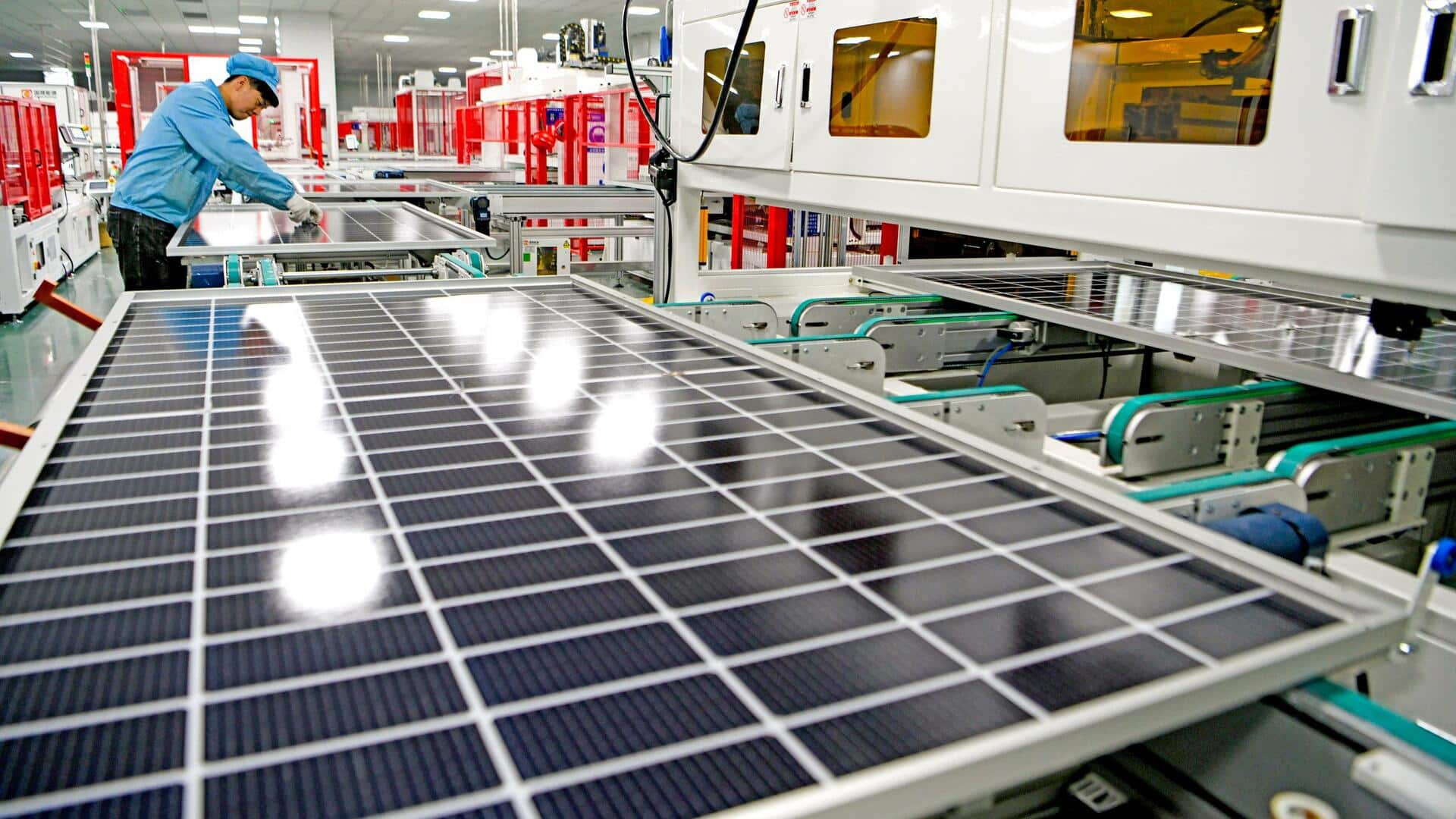
Modi government mulls $1B subsidy to boost solar manufacturing sector
What's the story
The Indian government is finalizing a $1 billion capital subsidy plan to bolster the country's solar manufacturing industry, as per Bloomberg.
The move is part of a larger plan to lower dependence on China and take advantage of the global energy transition.
The Ministry of New and Renewable Energy is leading the proposal, which specifically targets domestic makers of wafers and ingots, one of the weakest sectors in India's solar industry.
Progress
Subsidy plan awaits cabinet approval
The subsidy plan has been backed by top advisers in PM Narendra Modi's office and is tipped to be presented for cabinet approval in the coming months.
This was revealed by people familiar with the matter, who asked not to be named as these discussions are private.
The Ministry of New and Renewable Energy did not respond to a request for comment on the initiative.
Import dependence
India's reliance on China for solar equipment
Currently, India depends on China for most of its solar equipment imports, which could jeopardize the country's energy security.
Although the domestic module and cell manufacturing sectors have grown substantially, wafer and ingot production is still in its infancy with just 2GW of capacity established by Adani Enterprises Ltd.
India, on the other hand, has over 71GW of modules and nearly 11GW of cells capacity according to Bloomberg NEF data.
Strategy
Subsidy plan aims to mirror mobile manufacturing success
The proposed subsidy plan aims to replicate the success of India's mobile-phone manufacturing industry.
The government has already invested billions in incentives to lure companies such as Apple and Samsung to set up manufacturing in India, a strategy that has led to a massive increase in iPhone exports from the country.
In the solar sector, high logistics and quality control costs for wafer and ingot production are likely to be reduced by these subsidies.
Raw material
India's polysilicon production capacity and global comparison
Even with possible expansion in wafer and ingot capacity, India would still have to rely on overseas suppliers for polysilicon, the raw material for their production.
India currently has no capacity to make this ultra-refined material, according to Bloomberg.
Globally, China dominates polysilicon manufacturing with an annual output of 2.3 million tons, far ahead of Germany's 75,000 tons.